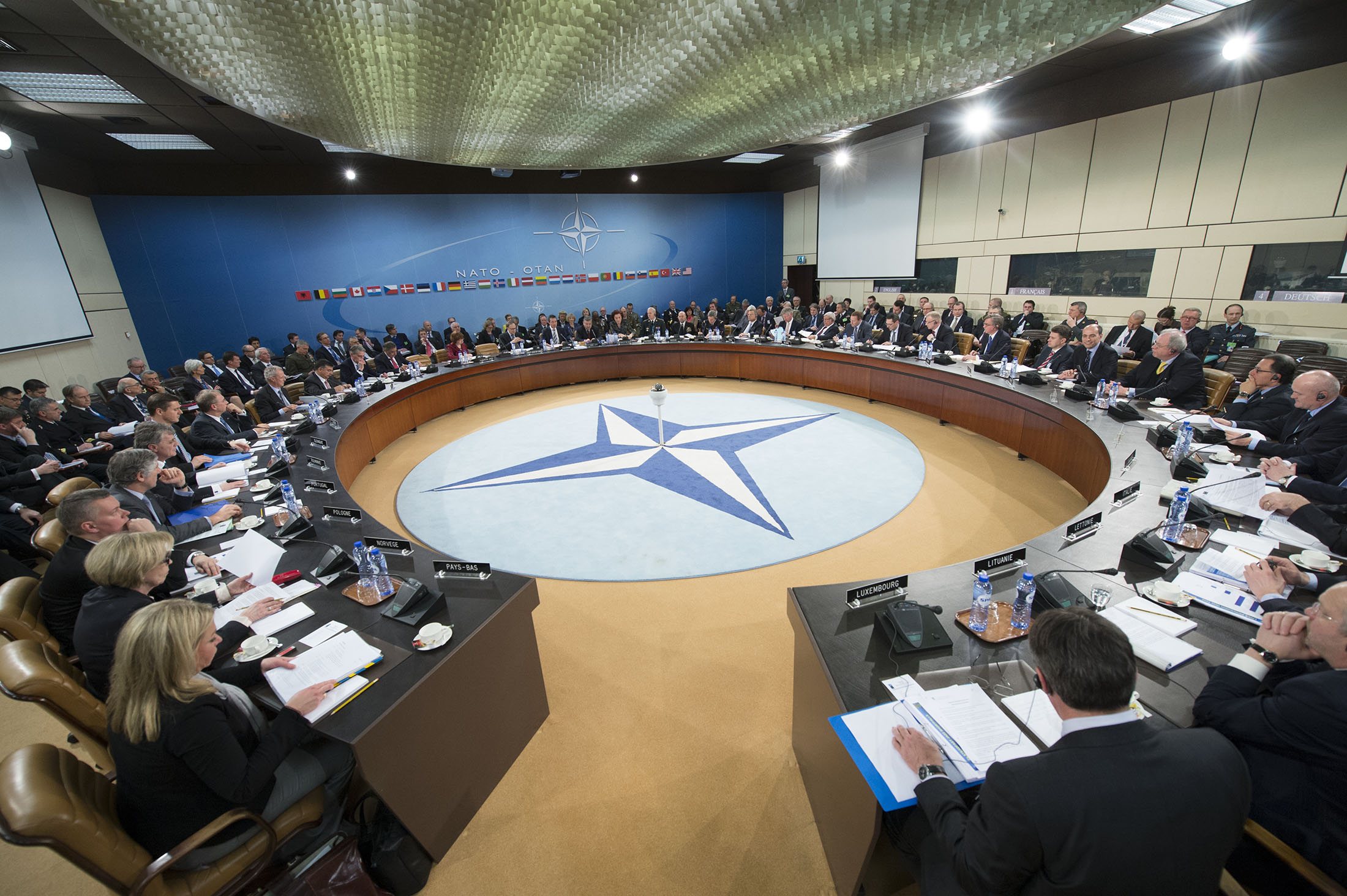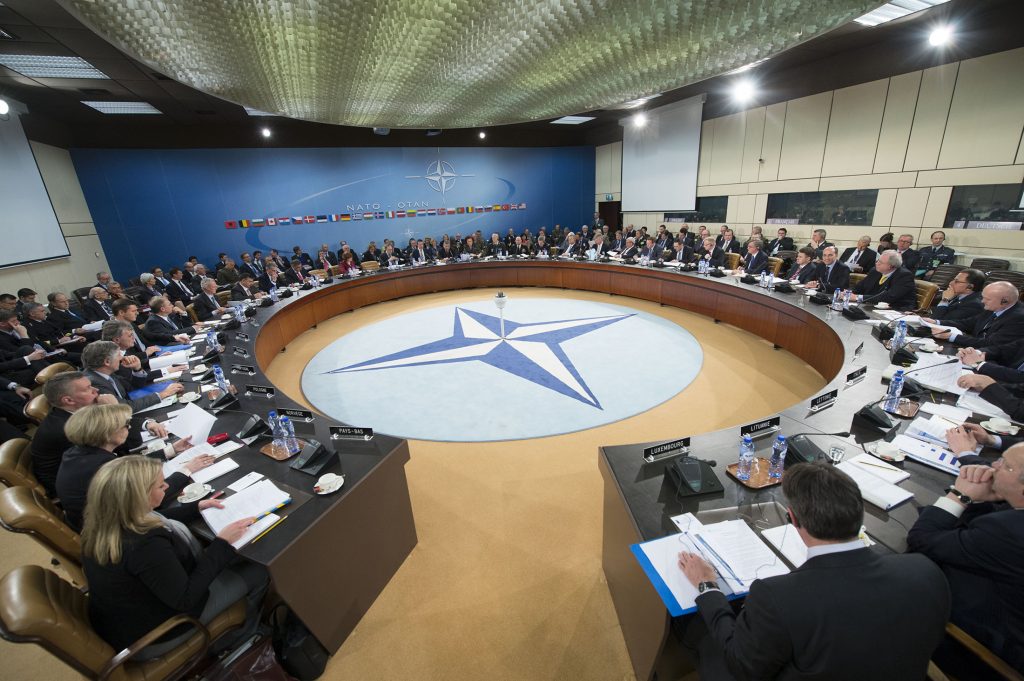
NATO Defense Ministers recently met for their periodic discussions on allied capabilities and operations, and engaged with their counterparts from partner countries to discuss the way ahead in Afghanistan.
Automatic US budget cuts which went into effect on March 1st were looming large. The Pentagon spokesman, George Little, announced on the eve of the ministerial that the US forces’ ability to train alongside its NATO allies was likely to be affected by the cuts, undermining the Alliance’s readiness. Nevertheless, the headlines from the meetings focused on agreements to expand exercises and multinational cooperation; goals for more ambitious training, education, and exercises to maintain interoperability; and lessons-learned from operations.
The very first question NATO Secretary General Anders Fogh Rasmussen faced following his “doorstep statement” to the press at the start of the ministerial had to be whether he was concerned about the effect that US cuts were going to have on Alliance capabilities and operations. He acknowledged that declining defense budgets all over NATO were a matter of concern. He used the opportunity to appeal to governments to hold the line, stop the cuts, make more efficient use of resources through multinational cooperation, and increase defense investments once economies recover. Pushed further by a journalist at the end of the ministerial, Rasmussen was asked whether there was a limit to the greater efficiency one could expect from “smart defense” and he acknowledged that indeed joint efforts and pooling and sharing resources could not replace a sufficient level of defense investments.
The transatlantic community is in a severe contracting mode, as the current crisis grips the economies of Europe and the United States, at the very time it needs to rethink its place in the world and redefine its strategic priorities as a community.
Eminent American strategic thinkers indeed consider that their country is at a crucial juncture of human history and have advised the Obama administration to seize the opportunity towards collaborative partnerships with its most stalwart allies in Europe, while casting their eyes beyond the transatlantic community and embracing a post-Western world. In Europe, governments with obviously less means and therefore less ambition seem more focused on their internal crisis. They are nonetheless at the table alongside the US and Canada at NATO ministerials, and they have continued to engage in common efforts in Afghanistan, Libya, and other places, alongside many partner countries also in the midst of economic challenges and all wondering today whether they need to prepare, should they inherit yet another operation.
According to NATO wisdom, faced with major fiscal constraints and defense cuts as an alliance, now is the time for governments to pull closer together through multinational efforts to lighten the burden and rely on each other. It’s not quite that simple for sovereign countries reluctant to relinquish their capacity to take sovereign decisions in defense matters.
In reality what Allies need is growth, as the transatlantic community depends on healthier economies. The debate across the Atlantic has in fact refocused of late on a trade pact between the US and the EU. The impediments to a free-trade agreement—from tariffs to conflicting government regulations—are no less challenging than the sovereignty issue has been to the NATO smart defense initiative.
Beyond growth, the transatlantic community needs a common vision. New initiatives, be it Smart Defense or the Connected Force Initiative repackaging long standing efforts towards greater interoperability and efficiency, will not replace a much needed strategic focus on openness—looking out rather than within. It is a common vision that pushed the Alliance into this century through two open processes: partnership and enlargement. This was the last vision Allies shared and it propelled them into a post-Cold War era.
How should the transatlantic community position itself in the face of increasingly obvious global trends?
Demographic patterns are clear with an aging population and growing urbanization putting new strains on global resources. The growth of a global middle class with widespread access to new communications is leading to individual empowerment, challenging the Westphalian system of state sovereignty, and feeding into a diffusion of power through amorphous networks. It is also well documented that within a decade or two, Asia will surpass North America and Europe in terms of global power.
What should this mean for the transatlantic community?
Looking beyond its immediate periphery and reaching out through collaborative approaches would seem obvious. While NATO has been doing this in some measure since the Cold War ended, the element of change may lie with first a more ambitious strategic vision, which positions the Atlantic community in the face of global trends and second a new approach to partnership—a partnership policy able to resist preferential treatment.
It is perhaps more obvious to note the preferential tendencies in free-trade agreements, which are not entirely free as they exclude non-participants. However, preferential tendencies are also evident in security partnerships, usually extended to or at least thriving with like-minded countries. Beyond genuine partnerships with countries sharing common values, Allies have engaged with other countries with a different set of values, with whom partnership proved much more challenging and failed to reach its full potential, resembling at times aid programs rather than a two-way partnership where both sides engage on an equal footing.
The transatlantic community may have reached the limits of NATO’s original approach to partnership based on common values, as preferential treatment may no longer fit a global world. As Operation Unified Protector in Libya demonstrated, the transatlantic community may be required to engage with those who may not necessarily aspire to the Western concept of secular modernity..
In the absence of a more ambitious strategic vision and a renewed approach to partnership less anchored on common values and more opened towards a post-Western world, NATO will continue to muddle through from one initiative to the next, whether smart or much needed. New initiatives will not be sufficient to propel this community of like-minded countries into a world of competing approaches to international relations.
Dr. Isabelle François is a senior fellow with the Council’s Brent Scowcroft Center on International Security.
Photo credit: NATO
Image: 20130221_130221c-027.jpg
